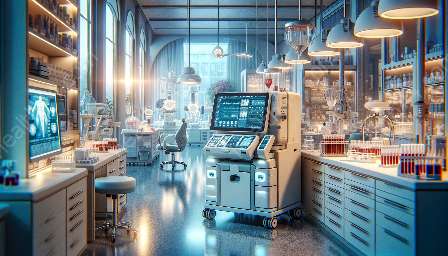Chromatography equipment forms the backbone of modern clinical testing and medical devices & equipment. With its ability to separate and analyze complex mixtures, it plays a crucial role in various medical applications. Let's explore the fascinating world of chromatography equipment and its impact on the healthcare industry.
The Science Behind Chromatography
Chromatography is a versatile analytical technique that separates a mixture into its individual components, enabling scientists to understand the composition of substances with high precision. The technique is based on differential migration of the components of a mixture between a stationary phase and a mobile phase.
Types of Chromatography Equipment
There are several types of chromatography equipment, each designed for specific applications in clinical testing and medical devices & equipment. This includes:
- Gas Chromatography (GC): Used for separating volatile compounds.
- Liquid Chromatography (LC): Ideal for separating non-volatile compounds.
- High-Performance Liquid Chromatography (HPLC): Offers high-resolution separation of complex mixtures.
- Ion Chromatography (IC): Focuses on the separation of ions and polar molecules.
Applications in Clinical Testing
Chromatography equipment is extensively used in clinical laboratories for various diagnostic purposes. It enables precise analysis of blood, urine, and other body fluids, helping in the detection and quantification of biomarkers, drugs, and disease-related compounds. From monitoring cholesterol levels to detecting illegal drugs in forensic analysis, chromatography is indispensable in clinical testing.
Contributions to Medical Devices & Equipment
Medical devices and equipment often require rigorous testing to ensure their safety and effectiveness. Chromatography plays a crucial role in quality control and validation processes for pharmaceuticals, medical implants, and prosthetics. It allows for the analysis of raw materials, drug formulations, and the degradation products of medical products, ensuring compliance with regulatory standards.
Advancements in Chromatography Technology
Recent advancements in chromatography equipment have significantly improved its sensitivity, speed, and resolution. Innovations such as ultra-high-performance liquid chromatography (UHPLC) and multidimensional chromatography have enhanced the capabilities of chromatographic systems, enabling faster and more accurate analysis of complex samples.
Impact on Medical Advancements
Chromatography equipment has been instrumental in advancing medical research and healthcare practices. It has facilitated the development of new drugs, biomaterials, and medical devices, contributing to improved patient care and treatment outcomes. Additionally, chromatography aids in the identification of environmental contaminants and occupational hazards, safeguarding public health and safety.
Future Trends and Innovations
The future of chromatography equipment is marked by continuous innovation and integration with other analytical technologies. Developments in miniaturized and portable chromatographic systems, coupled with advancements in data analysis and automation, are poised to revolutionize clinical testing and medical devices & equipment.
Conclusion
As the demand for precise and reliable analytics in clinical testing and medical devices & equipment continues to grow, chromatography equipment remains at the forefront of technological advancements. Its role in separating complex mixtures and analyzing compounds has profound implications for medical diagnostics, pharmaceutical research, and healthcare quality assurance. With ongoing innovation and interdisciplinary collaboration, chromatography is set to shape the future of healthcare.


